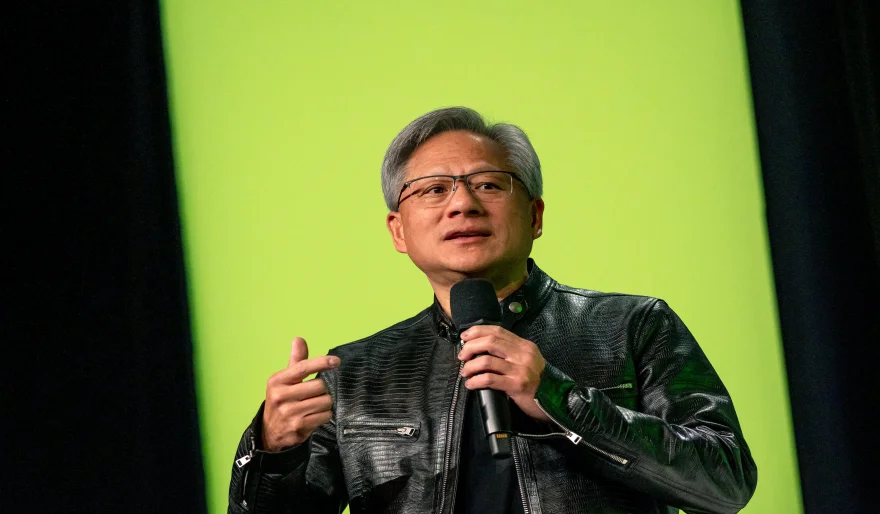Stay Ahead of the Curve
Latest AI news, expert analysis, bold opinions, and key trends — delivered to your inbox.
Nvidia Steps on the Gas: New AI Chips Arrive Hot on the Heels of Previous Launch
3 min read Nvidia, the dominant force in the graphics processing unit (GPU) market, surprised the tech industry today with the announcement of their next-generation line of AI chips. This reveal comes just months after their previous "Blackwell" model was unveiled in March 2024, highlighting the intensifying competition in the AI chip race. June 03, 2024 08:32
Nvidia, the dominant force in the graphics processing unit (GPU) market, surprised the tech industry today with the announcement of their next-generation line of AI chips. This reveal comes just months after their previous "Blackwell" model was unveiled in March 2024, highlighting the intensifying competition in the AI chip race.
A Rapid-Fire Approach
This quick turnaround signals a significant shift for Nvidia:
- Previously, Nvidia operated on a two-year update cycle for AI chips.
- CEO Jensen Huang has pledged a move to a "one-year rhythm" for new AI chip releases. This accelerated pace suggests Nvidia is feeling the heat from competitors like AMD and Intel who are vying for a larger share of the AI chip market.
The Newcomer: The "Rubin" Architecture
While details are still emerging, the newly announced "Rubin" architecture promises to be a powerhouse:
- Successor to Blackwell: Rubin succeeds the recently announced Blackwell model, suggesting potentially even greater processing power and efficiency.
- Focus on Unidentified Areas: Specific details regarding Rubin's strengths and target applications remain under wraps, keeping the tech world on the edge of its seat.
A Market on Fire
The rapid pace of Nvidia's innovation reflects the booming AI chip market:
- AI is rapidly transforming industries from healthcare and finance to self-driving cars and robotics.
- Powerful AI chips are crucial for running complex AI algorithms that require significant processing power.
Uncertainties and Potential Impacts
While Nvidia's aggressive strategy is a bold move, some questions linger:
- Can Nvidia maintain this rapid pace of development? Pushing the boundaries of chip technology can be expensive and time-consuming.
- Will developers be able to keep up? New chip architectures often require software updates and adaptation, which can create challenges for developers.
The Future of AI Chips
Nvidia's latest announcement underscores the fierce competition in the AI chip market. As companies like AMD and Intel strive to catch up, we can expect to see even more powerful and innovative AI chips emerge in the coming years, pushing the boundaries of what's possible with artificial intelligence.



















 AI Agents
AI Agents